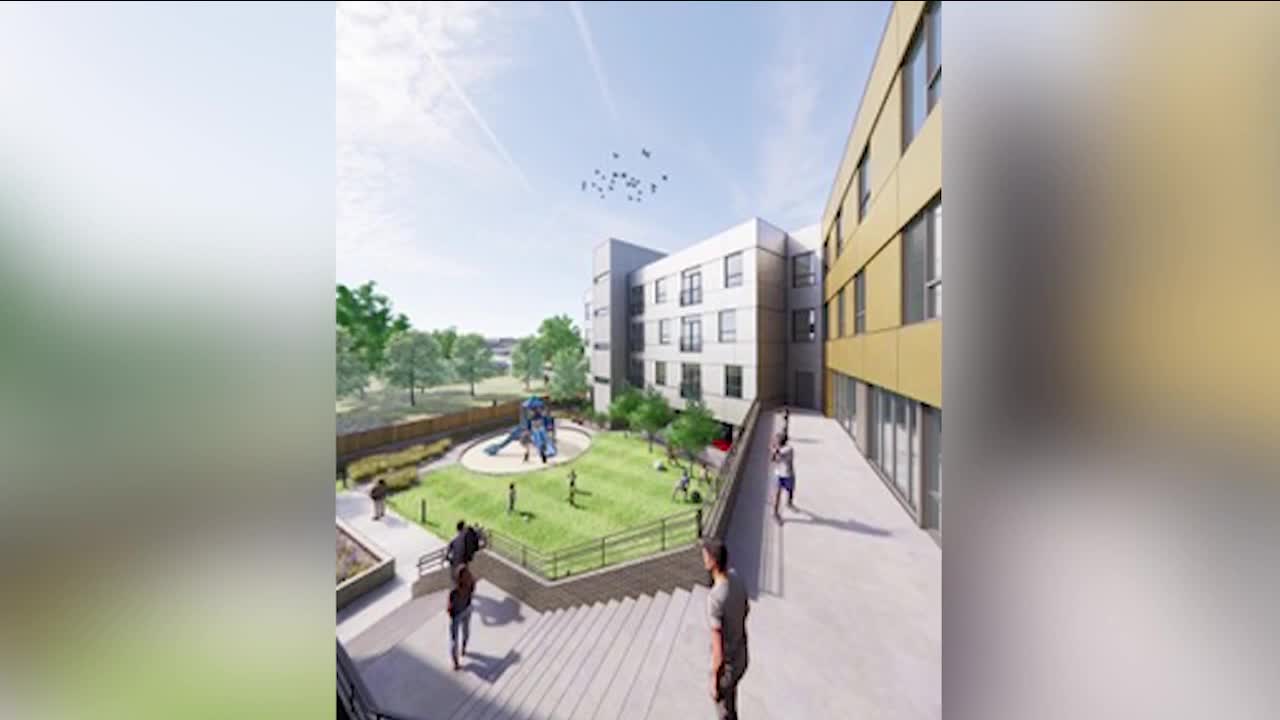A Commerce City affordable housing project is expected to be completed in just over a year.
South Platte Crossing Apartments will offer 60 housing units with 1, 2 and 3 bedroom plans. And the complex will feature high-end amenities, Eric Nesbitt, owner of Nesbitt Development, LLC, said.
"It's not going to look like your typical affordable housing development project," Nesbitt said. "It will look like a new market rate apartment building for citizens to enjoy."
Construction has already begun on the apartment complex, located at 72nd Ave. and Colorado Boulevard in Commerce City.
It will house residents earning 30-80% of the area median income.
The project is a joint effort between Nesbitt Development, Brinshore Development and Urban Land Conservancy (ULC).
"They (ULC) will own the land for 99 years, and they're granting us the ground lease conveying a ground lease to keep the property affordable," Nesbitt said.
Commerce City is example of increasingly unaffordable housing costs in Colorado, according to real estate agent Crystalle Guss.
"The average price to rent a house in Commerce City is about $2,800 a month," Guss said.
The prices can drive some Commerce City locals to other areas, according to Guss.
"If we can't afford to live in Commerce City, then we then leave the city," Guss said. "And so then we're overpopulating Aurora and Denver and other places like Lakewood, where it's more affordable to live."
The South Platte Crossing Apartments are located near the RTD N Line Avenue Station.
They're also just a few yards away from South Platte Crossing, a building which houses childcare facilities and mental health counselors, which will be made available to some residents.
"People who are looking for affordable housing deserve the same amenities that everyone deserves," Nesbitt said.
Nesbitt, a long-time real estate attorney, is a first-time real estate developer.
Nesbitt Development, a Black-owned real estate development company, is a rarity. He's also one of very few African American real estate developers in the country.
"We don't see a lot of diversity at all in this business," Nesbitt said.
According to Grove Impact, Black developers represent 0.40% of the industry, while Hispanic developers represent 0.16% of the industry.
Nesbitt hopes to not only build more housing, but to also open the door for other diverse developers.
"Affordable housing impacts our communities," Nesbitt said. "They have Black professionals, Hispanic professionals, who are able to get in and understand the needs of our community, and serve the needs of our community. That's important."
Nesbitt is counting down the estimated 14 months it will take to complete the complex because he's looking forward to seeing people move in for the first time.
"That really will make it worthwhile," he said.




